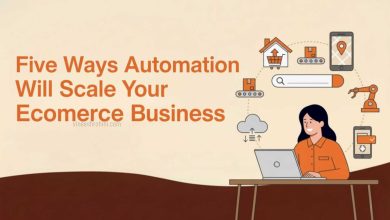How to Build a Team for Your Online Business ?: Comprehensive Guide 2025
Team for Your Online Business : In today’s digital-first business landscape, online entrepreneurship is growing faster than ever. But as your business expands beyond a one-person operation, one of the biggest challenges you’ll face is building a reliable, skilled, and motivated team. The success of your online business doesn’t just depend on your idea or marketing—it depends on the people behind it. Building a team for your online business in 2025 requires a clear vision, smart hiring strategies, modern collaboration tools, and an understanding of how to manage remote talent effectively.
Table of Contents
This comprehensive guide will walk you through everything you need to know—from identifying your business needs to hiring, managing, and retaining top talent for long-term success.
Understanding the Importance of Team Building in Online Business

Every successful online business—from e-commerce startups to digital marketing agencies—relies on a solid team structure. A strong team allows you to scale operations, improve productivity, and bring diverse skills to your business. In 2025, where automation and artificial intelligence are reshaping workflows, the human element of teamwork remains irreplaceable. When you delegate tasks to specialists—whether it’s content creation, design, customer support, or development—you free up your time to focus on growth strategies and innovation.
Also Read : How to Build a Profitable Online Community – comprehensive Guide
Building a team also brings accountability and consistency. Instead of juggling every task yourself, you can rely on a structured team to handle specialized functions efficiently. This ensures faster turnaround times, higher-quality work, and a smoother workflow that leads to steady business growth.
Step 1: Identify the Core Roles You Need
Before you start hiring, analyze your current workload and pinpoint which areas need dedicated attention. Every online business has its unique set of needs, but most fall into a few essential categories. For example, if you run an e-commerce store, you may need a product manager, customer service representative, social media manager, and logistics coordinator. For a digital marketing business, you might need SEO experts, copywriters, designers, and ad managers. Here are some of the most in-demand roles for online businesses in 2025:
- Virtual Assistant – Handles administrative tasks, scheduling, email management, and research.
- Social Media Manager – Manages brand presence, content planning, and engagement across social platforms.
- Graphic Designer – Creates branding materials, social posts, and web graphics to enhance visual appeal.
- Content Writer/Copywriter – Produces blog posts, website content, and ad copy for marketing campaigns.
- Web Developer/Designer – Builds and maintains your website or e-commerce store.
- Digital Marketing Specialist – Focuses on SEO, SEM, PPC, and email campaigns.
- Customer Support Executive – Provides timely assistance and maintains customer satisfaction.
- Project Manager – Oversees workflows, deadlines, and team communication.
- Finance Manager/Accountant – Handles budgets, expenses, and financial reporting.
- Automation Specialist – Integrates tools and software to improve workflow efficiency.
Start by listing out which of these positions align with your business goals, and decide whether each role needs to be full-time, part-time, or freelance.
Step 2: Choose Between Freelancers, Contractors, or Full-Time Employees
One major advantage of running an online business is flexibility in how you hire. Depending on your budget, project size, and workload, you can choose between freelancers, part-time contractors, or full-time employees. Freelancers are ideal for short-term projects or specialized tasks such as logo design, blog writing, or ad campaigns. You can find them easily on platforms like Upwork, Fiverr, or Freelancer. Contract-based hires are perfect for ongoing tasks that don’t require a permanent position, such as monthly SEO or social media management.
Full-time employees, on the other hand, are suitable when you have consistent work and need someone to align deeply with your company’s long-term vision. In 2025, many online businesses are embracing the hybrid team model—a mix of freelancers and core full-time members—to maintain flexibility while ensuring stability. This approach helps you scale faster without overcommitting to payroll costs.
Step 3: Use the Right Platforms to Find Top Talent
Finding the right people for your team is easier than ever, thanks to the rise of digital hiring platforms. Depending on the type of roles you need, you can explore a variety of hiring websites. For freelance roles, platforms like Upwork, Fiverr, Toptal, and PeoplePerHour offer skilled professionals across industries. For full-time or remote positions, consider LinkedIn, Indeed, and RemoteOK.
If you’re building a technical team, platforms like AngelList, Stack Overflow Jobs, or GitHub Jobs are highly effective. Always write a detailed job description highlighting your business mission, role responsibilities, key skills, and expected outcomes. This not only attracts qualified candidates but also filters out those who may not be the right fit. As competition for remote talent grows in 2025, clarity and professionalism in your job listings will help you stand out as a desirable employer.
Step 4: Assess Skills and Cultural Fit
Technical skills are crucial, but cultural fit is equally important when building a team for your online business. You want people who not only perform tasks well but also align with your company’s values, goals, and work ethics. During interviews or test tasks, evaluate candidates based on both skill and personality. Ask scenario-based questions that reflect real challenges your business faces. For example, “How would you handle multiple deadlines with conflicting priorities?” or “Describe how you’ve contributed to a remote team’s success in the past.” This helps assess problem-solving abilities and teamwork potential.
In 2025, soft skills like communication, adaptability, and digital literacy are increasingly valuable. Tools like TestGorilla and SkillValue can help you run skill-based assessments before making hiring decisions. Once you identify the right mix of talent and personality, you’re one step closer to building a productive team.
Step 5: Use Collaboration Tools to Manage Remote Teams
Managing an online business team means mastering digital collaboration. Without physical offices, your success depends on effective communication, project tracking, and accountability. Fortunately, there are numerous tools that make remote management seamless. Platforms like Slack and Microsoft Teams enable instant communication, while Trello, Asana, and ClickUp help manage projects and deadlines. For file sharing and document collaboration, tools like G Workspace and Notion are indispensable.
Time-tracking and productivity tools such as Toggl Track or Clockify ensure transparency across team members. In 2025, AI-integrated tools are taking collaboration even further—automating task allocation, predicting workflow bottlenecks, and streamlining decision-making. The key is to build a tech stack that supports your team’s workflow without overwhelming them. Choose tools that integrate easily and encourage daily engagement.
Step 6: Build a Strong Onboarding Process
Once you’ve hired your team, onboarding is the next critical step. A structured onboarding process ensures that new members understand your company’s goals, workflow, and communication standards from day one. Start with an introduction to your brand vision, mission, and core values. Provide access to essential tools, software, and internal documents.
Clearly outline role expectations and project deadlines. Assign a mentor or team lead to guide them during the first few weeks. This builds confidence and reduces confusion. In online business management, poor onboarding can lead to miscommunication and low productivity. In 2025, virtual onboarding programs have evolved with video introductions, digital training modules, and AI-driven learning systems. The smoother your onboarding, the faster your team adapts and performs.
Step 7: Encourage Collaboration and Communication
A productive team is one that communicates openly and collaborates effectively. In an online environment, lack of communication can create confusion and disconnect. As a leader, establish clear communication protocols. For instance, use Slack for daily updates, Zoom for weekly meetings, and project boards like Trello for progress tracking. Encourage transparency—team members should feel comfortable discussing challenges or seeking feedback.
Regular check-ins help maintain alignment and motivation. Use collaboration sessions or brainstorming meetings to encourage creativity. Team-building activities such as virtual coffee breaks or online games also strengthen relationships and foster trust. In 2025, successful online business owners prioritize human connection as much as productivity. Building a culture of collaboration leads to happier teams, better results, and reduced turnover.
Step 8: Delegate and Empower Your Team
Delegation is the foundation of scaling an online business. Instead of micromanaging, empower your team members to take ownership of their responsibilities. Assign clear tasks and trust them to deliver. Set measurable goals and timelines, but allow flexibility in how they achieve them. Use KPIs (Key Performance Indicators) to monitor performance objectively.
For instance, a content writer’s KPI might be the number of articles published per week, while a digital marketer’s KPI could be lead generation metrics. Empowered employees feel valued and motivated, which leads to higher engagement and productivity. As a business owner, your role shifts from doing everything yourself to managing performance, solving problems, and planning growth strategies.
Step 9: Build a Positive Work Culture
In 2025, building a team for your online business isn’t just about hiring the right people—it’s about creating an environment where they thrive. Culture is what defines how your team communicates, makes decisions, and handles challenges. Even in a virtual setup, you can foster a strong work culture through recognition, inclusion, and respect. Celebrate small wins, offer constructive feedback, and acknowledge hard work publicly.
Encourage continuous learning by providing access to courses or webinars. A supportive culture also means maintaining work-life balance. Avoid overloading your team with unrealistic deadlines, and allow flexibility in working hours when possible. When people feel appreciated and trusted, they stay loyal and contribute more meaningfully to your business.
Step 10: Measure Performance and Offer Feedback
Performance tracking keeps your team aligned with your business goals. Regular performance reviews help identify what’s working and what needs improvement. Use measurable criteria such as productivity rates, client satisfaction, or revenue growth. Conduct one-on-one feedback sessions to discuss progress and challenges. Constructive feedback helps employees grow, while recognition reinforces positive behavior.
Many online business owners now use OKRs (Objectives and Key Results) to measure team success. These metrics link individual efforts to company-wide objectives, ensuring everyone moves in the same direction. In 2025, data-driven performance evaluation systems powered by AI are making this process more precise, helping business owners make smarter decisions.
Step 11: Retain Top Talent with Growth Opportunities
Retaining good employees is just as important as hiring them. High turnover can disrupt operations and increase costs. To keep your best talent engaged, provide opportunities for professional growth. Offer skill development programs, career advancement paths, and performance-based bonuses. Recognize their contributions regularly—sometimes appreciation is more powerful than monetary rewards.
Encourage employees to take initiative and innovate. When people see long-term growth potential, they’re more likely to stay committed. In 2025, retention strategies also include flexible work models, mental health support, and remote work benefits. Treat your team like valued partners, not replaceable workers, and they’ll reward you with loyalty and productivity.
Step 12: Adapt and Scale Your Team with Growth
As your online business grows, your team structure should evolve. You may need to add new roles, reorganize departments, or automate certain functions. Regularly assess which areas are overworked or underperforming. Introduce automation tools to handle repetitive tasks so your team can focus on high-value work. When expanding globally, consider hiring regional specialists for marketing or customer support to localize your services.
Scaling also means strengthening your leadership—train team leads who can manage sub-teams independently. The key is to maintain balance—grow your team sustainably without compromising quality or culture. A well-structured, scalable team ensures your online business can adapt to market changes and stay competitive.
Common Mistakes to Avoid When Building a Team
While building a team can transform your online business, several mistakes can hold you back. Avoid hiring too fast without proper screening—poor hires can drain time and money. Don’t micromanage; it kills creativity and independence. Steer clear of unclear communication, which leads to misunderstandings. Never ignore company culture—skills can be trained, but values must align naturally.
And most importantly, don’t underestimate onboarding and feedback; skipping these steps can lead to disengaged employees. Learn from these pitfalls and prioritize clarity, communication, and culture at every stage.
The Role of AI and Automation in Team Management 2025

Artificial Intelligence is reshaping how online businesses build and manage teams. In 2025, AI-powered tools assist in hiring by screening resumes, assessing skills, and predicting candidate performance. Once onboarded, automation systems handle repetitive administrative tasks like payroll, scheduling, and performance tracking. Chatbots improve internal communication, while AI analytics help monitor productivity and engagement levels. However, while technology enhances efficiency, the human touch remains essential.
Emotional intelligence, empathy, and creativity—qualities that define great teams—can’t be automated. The smartest online businesses in 2025 combine AI’s efficiency with human insight to build balanced, future-ready teams.
Conclusion

Building a team for your online business is not just about hiring employees—it’s about creating a shared vision.
Buy Now : Ready Made Digital Store with 100 Products
A well-structured, motivated, and skilled team becomes the backbone of your digital enterprise. From defining roles and hiring strategically to fostering collaboration and culture, each step plays a vital role in your success. As online businesses continue to expand globally in 2025, team building has become a strategic advantage rather than an operational necessity. Whether you’re running an e-commerce store, digital agency, or online education platform, your ability to attract, nurture, and retain top talent will determine your business’s long-term sustainability. Start small, grow smart, and build a team that believes in your mission as much as you do.
Disclaimer
This article is for informational purposes only. Business owners are advised to conduct independent research and seek professional guidance when making hiring or management decisions for their online businesses. The strategies and tools mentioned are based on current market trends as of 2025 and may vary depending on industry and location.
Keywords : Team for Your Online Business – Team for Your Online Business 2025



